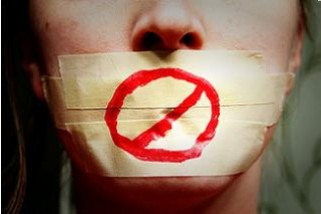In a petition filed to Israel’s High Court of Justice today last week by human rights groups, alumni of an Arab school in Haifa, parents, and a geography professor, the petitioners asked the court to announce that the “Nakba Law” is unconstitutional and should be annulled, as it violates a long list of constitutional rights, first and foremost freedom of expression and the right to equality, and in addition severely infringes on the rights of Israel’s Arab citizens.
Schools, universities, local councils, and cultural institutions may suffer budget cuts if they mark the Israel’s Independence Day (marked in the Hebrew calendar date of 5 Iyar, which this year coincide with May 10) or the date of the founding of the State of Israel (May 15) as a day of mourning, according to a new law that was passed in the Knesset in March 2011.

Photo Jennifer Moo / Flickr
The petitioners asked the court to issue an interim injunction, suspending the implementation of the law until a ruling is reached. An immediate order would prevent the possible self-censorship of institutions and the monetary damage they may suffer, since Independence Day and the Nakba Day will be marked in the coming days.
The petition was filed jointly by the Association for Civil Rights in Israel (ACRI); Adalah, The Legal Center for the Arab Minority in Israel; five parents of children who study at “Galil,” a joint Jewish-Arab school in the Galilee; an NGO of alumni from the Arab Orthodox School in Haifa; and Prof. Oren Yiftachel, a leading researcher from the Ben-Gurion University.
The “Nakba Law,” which was added as an amendment to the Budget Principles Law in March 2011, outlines budget reduction for institutions that receive financial support from the state. It authorizes the Minister of Finance to relinquish monetary support if the body or institution has made any payment towards an event or action undermining the “existence of Israel as a Jewish and democratic state,” or marking the date of Israel’s establishment “as a day of mourning.”
In a debate held in the Knesset Constitution Committee, Chairperson MK David Rotem (Israel Beitenu) stated that such a day of mourning does not necessarily have to coincide with Israel’s official Independence Day, and thus any reference to the Nakba made throughout the year may fall within the category of this law. The vague wording of the law, and the fact that it gives the Minister of Finance the power to determine its implementation, raises concerns that the law will be enforced in a discriminatory manner, which will enhance the already existing oppression of Arab citizens of Israel.
In the petition, Attorneys Sawsan Zaher and Hassan Jabareen of Adalah, and Attorney Dan Yakir of ACRI, outlined the infringements on freedom of speech, freedom of political expression, freedom of artistic expression, the right to equality, the right to education, academic freedom, group dignity, and freedom of occupation.
Arik Kirshenboim, whose daughter attends the Arab-Jewish school “Galil” in Misgav said: “Our daughter is studying in this unique school because we did not wish her to grow up in a climate of ‘we are right – they are wrong,’ which unfortunately prevails in both Jewish and Arab societies in Israel. This is not about politics, but about education without censorship. There were people who suffered when the State was founded, why should we hide it? Why not choose to acknowledge the pain and heal it?”


